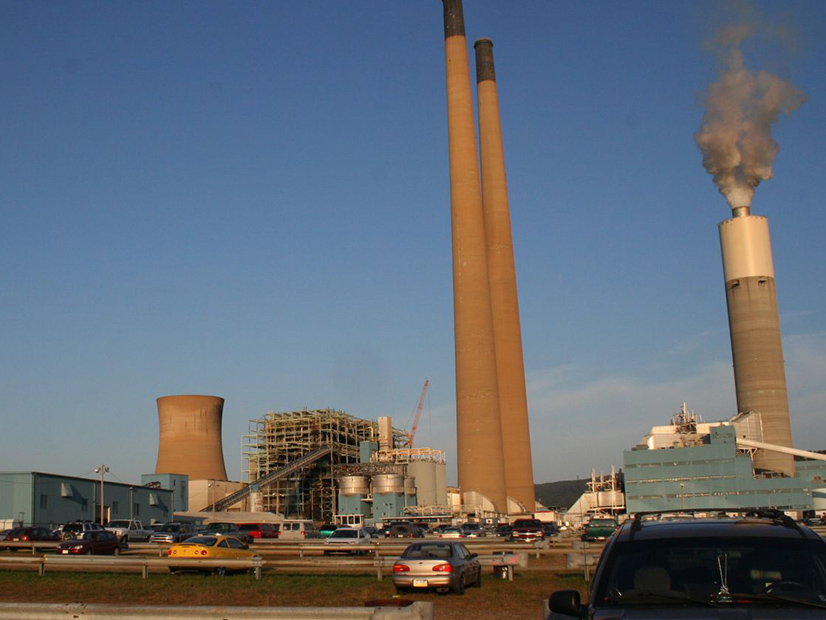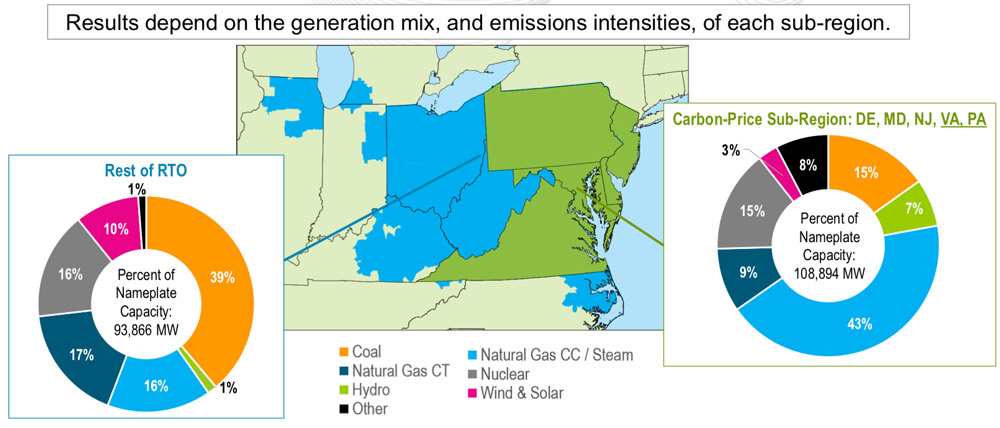
A Pennsylvania judge on Friday blocked Gov. Tom Wolf’s effort to enter the Regional Greenhouse Gas Initiative (RGGI), saying opponents were likely to win their argument that the administration’s plan required legislative approval.
Commonwealth Court Judge Michael Wojcik issued a temporary injunction in response to petitions by the coal industry, operators of the Keystone and Conemaugh plants, and others.
Wolf in 2019 ordered the state’s Department of Environmental Protection (DEP) to develop a rulemaking to enter RGGI, and the Environmental Quality Board (EQB) adopted it in July 2021. But the Republican-dominated Senate and House of Representatives approved resolutions rejecting the rulemaking under the Regulatory Review Act. Their action prompted a veto by Wolf, which the GOP was unable to override.
Opponents — including the Pennsylvania Coal Alliance, the United Mine Workers and other unions — then turned to the court.
The challenge centers on whether the proceeds resulting from the rulemaking’s required purchases of CO2 allowances constitute a tax or a regulatory fee. The rulemaking required fossil fuel-fired electric generating units (EGUs) of 25 MW or larger to purchase allowances for each ton of CO2 emitted through quarterly auctions, with a declining CO2 allowance trading budget.

The Air Pollution Control Act (APCA) allows the executive branch to impose fees to cover the costs of administering its air pollution control program, but only the General Assembly has the authority to levy taxes.
“We reject [former DEP] Secretary [Patrick] McDonnell’s argument that the allowance auction proceeds do not constitute a tax because covered sources pay RGGI Inc. for the allowances purchased and not the commonwealth,” Wojcik wrote. “It is undisputed that the auction proceeds are remitted to the participating states.”
Wojcik said McDonnell was “unpersuasive” because the auction proceeds will go to the Clean Air Fund “and DEP anticipates significant monetary benefits from participating in the auctions.” He cited DEP’s estimate that only 6% of the proceeds from the CO2 allowances auctions would be for the costs of administering the CO2 Budget Trading Program: 5% for DEP and 1% for RGGI.
From 2016 to 2021, the Clean Air Fund annually maintained between $20 million and $25 million. But estimated receipts for the 2022/23 budget year, with RGGI, exceed $443 million — more than double DEP’s total budget of about $169 million.
The court considered several questions, including whether the injunction is necessary to prevent immediate harm that cannot be compensated by money damages. The petitioners said their injuries would not be recoverable because DEP and EQB have sovereign immunity. They also had to show that refusing the injunction would cause more harm than granting it.
The petitioners said the rule would have compliance costs of about $200 million that would be passed along to consumers, and that RGGI supporters’ claims that the rulemaking would cause meaningful GHG reductions were undercut by DEP’s modeling.
“There is no dispute that petitioners will face increased costs as a result of the rulemaking,” Wojcik wrote. “There is also no dispute that this increase in costs will ultimately be passed on to consumers.” A DEP witness testified that the rulemaking would increase wholesale power prices by 2.4% and retail prices by 1.2%.
Wojcik cited the rulemaking’s recognition that it would result in “leakage” of additional fossil fuel emissions outside of the state. DEP’s modeling found that a reduction of 97 million short tons of CO2 by 2030 in Pennsylvania would result in only a net 28 million ton reduction across PJM.
Crucially, the respondents needed to show that they were likely to prevail on the merits.
Wojcik said he agreed with the petitioners. “While the General Assembly may delegate the power to tax, the delegation must be clearly conferred via statute, and any such delegation appears absent from the APCA.”
Appeal Expected
Wojcik dismissed as “insufficient” testimony by environmental groups on the effects of CO2 emissions on climate change and human health.
While Keystone and Conemaugh emitted about 15.5 million tons of CO2 in 2021, “the record lacks evidence of the CO2 emission levels of the remaining Pennsylvania-covered sources or suggesting that the covered sources would be required to reduce emissions based on the available allowances,” Wojcik said.
“Even accepting for preliminary injunction purposes that implementation of the rulemaking would result in an immediate reduction in CO2 emissions from Pennsylvania’s covered sources, we conclude that implementation and enforcement of an invalid rulemaking would cause greater harm if the rulemaking is determined to violate the constitution or a statute.”
“While only temporary, the court’s decision is yet another roadblock and stalling tactic from RGGI opponents,” responded Jessica O’Neill, lead attorney for PennFuture, Clean Air Council, Sierra Club, Environmental Defense Fund and Natural Resources Defense Council. “The impact that RGGI will have on the health, safety and welfare of our members, our climate and our environment cannot be overstated. Simply put, RGGI will save lives, create jobs and lower Pennsylvania’s carbon footprint at a time when we need it most.”
O’Neill said the groups expect DEP to appeal the ruling, “which means the Supreme Court will have the opportunity to reinstate the RGGI rule.”

